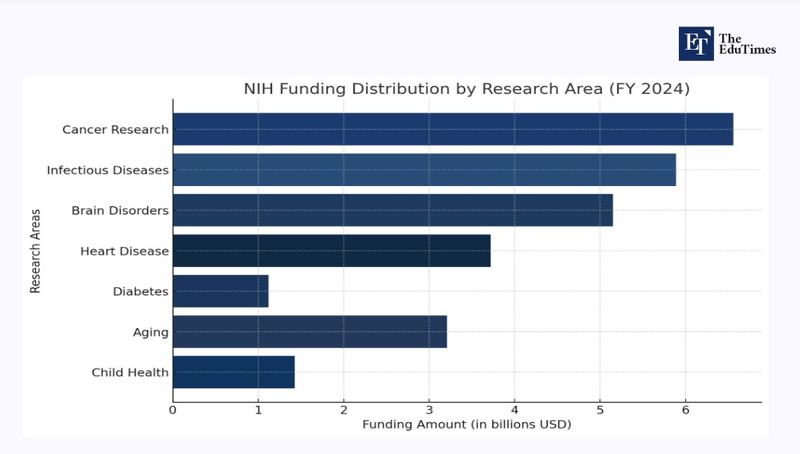President Trump and the Threat to Academic Freedom: Concerns from the Academic Community
Input
Modified
The political environment is still being shaped by President Donald Trump's administration, his education policies have raised serious questions about the future of academic freedom in the US. With the passage of several executive orders and directives, the academic community is considering the possible effects in the education system, that some see as a direct danger to academic independence.
The 2020 executive order that Trump issued to combat what he called "radical indoctrination" in schools was one of the most controversial parts of his education program. The program "Ending Radical Indoctrination in K-12 Schooling" aimed to advance a "patriotic education" that minimized conversations on historical and social injustices and structural racism while elevating American history. Many academics and educators, however, saw this action as an attempt to control the curriculum and impose a politically motivated view of history that ran counter to the fundamental goals of academic research.

The decree drew harsh criticism from Harry Keyishian, a prominent player in the struggle for academic freedom. Keyishian said that Trump's actions could discourage intellectual freedom in a similar way to the McCarthy era, when political conformity was enforced within academic institutions. The Trump administration ran the risk of weakening academic integrity and discouraging academics from engaging in true, autonomous concept discovery by trying to enforce a certain ideological narrative. Keyishian underlined that such actions might push the nation toward authoritarianism, where a strictly defined nationalistic purpose is prioritized over intellectual criticism.
Moreover, the drive for "patriotic education" in K–12 schools also encompassed more general concerns about diversity, equity, and inclusion (DEI). DEI programs at colleges were specifically targeted by Trump's administration, which aimed to eradicate them in favor of a more uniform educational experience. The administration specifically claimed that DEI initiatives, which aimed to establish welcoming environments for underrepresented groups, were fostering a climate of "reverse discrimination."
Numerous public colleges rely significantly on student loans, federal grants, and other sources of funding. Trump's education proposals thus sparked worries that these institutions would be under a lot of pressure to follow political directives to keep their financing. The administration may have significant control over academic activities, such as the kinds of research conducted, the ideologies taught, and the freedom of expression itself inside the academic setting.

In Keyishian v. Board of Regents (1967), which overturned the necessity for educators to take loyalty oaths and upheld academic freedom as a fundamental tenet of democratic society, provides the historical basis for defending academic freedom in the United States. Keyishian recalled how this decision protected academic institutions from political meddling. He and others pointed out that in the current political environment, where executive directives and ideological pressures jeopardize academic institutions' independence, the safeguards outlined in Keyishian might not be enough or appropriate.
Higher education was often portrayed by the administration as a haven of "liberal indoctrination," advancing a worldview that challenges conventional American values. Academics who disagreed with the administration's views, especially those that dealt with racial, gender, and climate change issues, voiced worries that their work may be suppressed or politically censored.
Research was also affected by this concern of ideological dominance, particularly in scientific domains. The scientific community was alarmed by the Trump administration's suspension on government research funding, especially grants from the National Institutes of Health (NIH). Uncertainty resulted from the abrupt suspension of billions of dollars in federal research funds, and scientists were afraid of political backlash for generating studies that went against the administration's stance. If scientists were financially compelled to align their research with political beliefs, the fundamental basis of scientific investigation might be compromised.
The administration's focus on cutting the government workforce and shifting scientific research goals toward politically acceptable results also had long-term effects for the United States' position as a leader in scientific innovation worldwide. Many scholars started looking for possibilities elsewhere, especially in nations where academic independence was still safeguarded. The United States' standing as a leader in science and technology could have been weakened by this brain drain and the dismantling of international cooperation.

Trump's support for school choice was one of his most divisive educational policies. Trump sought to give parents more authority over their children's education by supporting the growth of private schools, charter schools, and school vouchers. Critics said that this strategy could undermine the values of academic freedom in public education, while others praised it for improving educational performance. When school choice and public school funding cuts were combined, there were worries that market forces and ideological pressures would make it more difficult for public schools to provide a critical, well-rounded education free from political meddling.
Furthermore, the drive for school choice and privatization was perceived as a danger to the independence of educational establishments, especially public schools, which have historically functioned as autonomous organizations that place a higher priority on scholarly research than political sway. Increased emphasis on private and religiously based educational options, according to critics, may restrict prospects for underserved communities and exacerbate educational inequality. Furthermore, such a change would further politicize education, resulting in a situation where political or commercial interests, rather than free speech and intellectual inquiry, determine curricula.
The politicization of education, according to academics, researchers, and universities, could make it more difficult to challenge the status quo, encourage critical thinking, and openly explore ideas. They underlined that academic freedom is an essential component of democracy and not merely an ideal. The entire society runs the risk of losing its ability to have important, revolutionary conversations if universities and research institutions lose their independence. The Trump administration's policies regarding academic freedom and education caused a great rift between those who thought they would improve national cohesion and those who were concerned that they would undermine the intellectual independence of educational establishments. To protect academic freedom and make sure that learning environments encourage independent thought and critical investigation, the academic community must continue to be more watchful for the future generation.





















